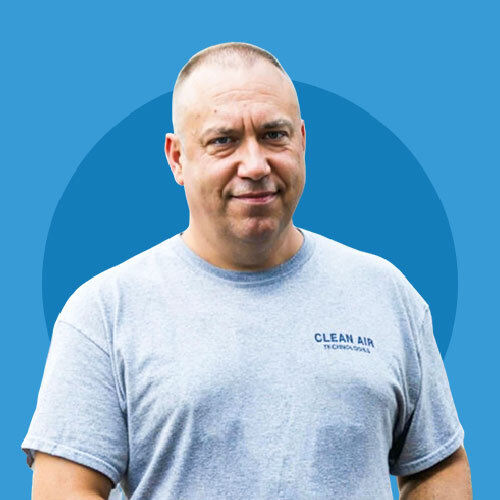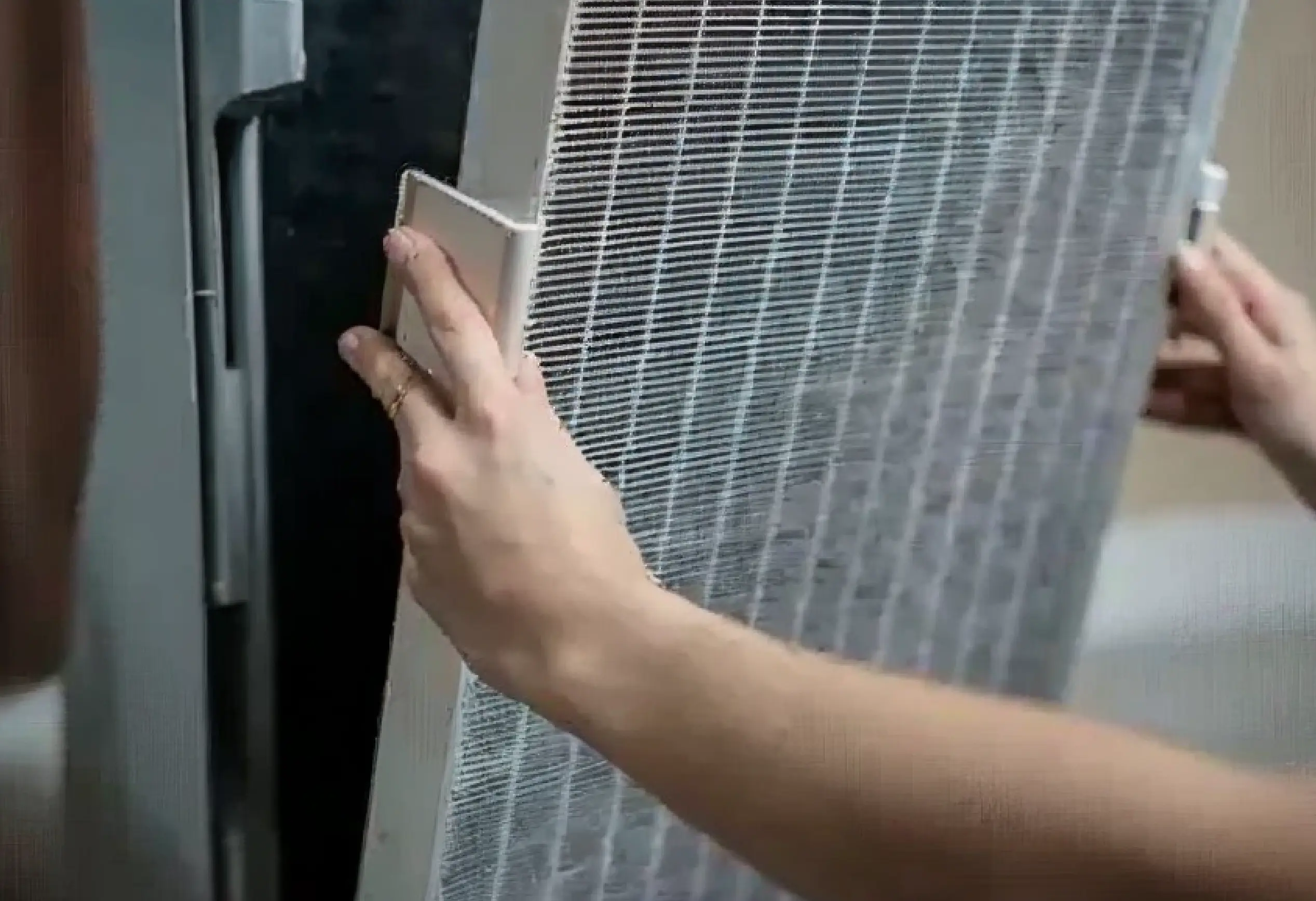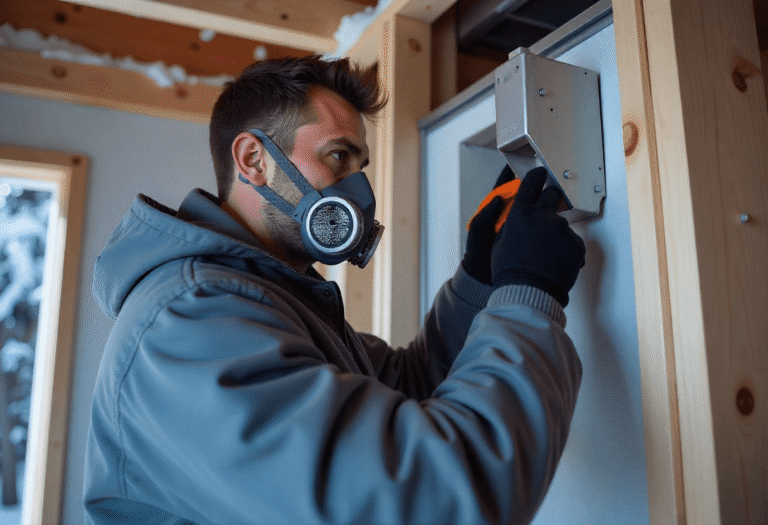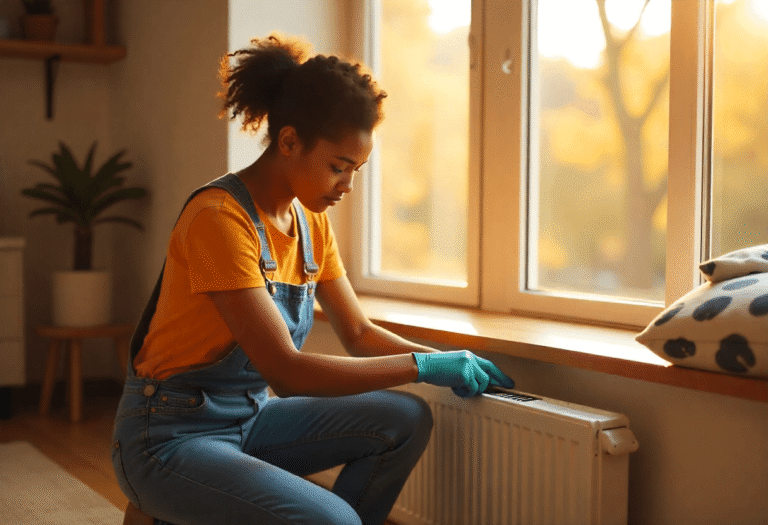Introduction
Indoor air quality has become a significant concern for homeowners and office workers alike. The air we breathe inside our homes and workplaces can contain numerous pollutants that affect our health and comfort. Common indoor air contaminants include dust mites, pet dander, pollen, mold spores, bacteria, and volatile organic compounds from cleaning products and furniture.
HEPA filtration stands out as one of the most effective solutions for addressing these airborne pollutants. Unlike standard air filters that only capture larger particles, HEPA filters provide superior performance in removing microscopic contaminants that can trigger allergies and respiratory issues. These advanced filtration systems work continuously to clean the air, making them particularly valuable in today’s environment where people spend up to 90% of their time indoors.
The importance of clean indoor air cannot be overstated, especially considering that indoor air pollution can be two to five times higher than outdoor levels. Whether you’re working from home, managing a busy office, or simply want to create a healthier living environment for your family, understanding how HEPA filtration can improve your indoor air quality is essential for making informed decisions about your health and comfort.
Key Takeaways
- HEPA filters capture 99.97% of particles 0.3 microns and larger, including dust, pollen, pet dander, bacteria, and viruses
- Reduces respiratory symptoms for asthma and allergy sufferers by removing common airborne triggers
- Helps prevent illness transmission by filtering bacteria and viruses in homes and offices
- Improves workplace productivity through cleaner air that reduces fatigue and increases focus
- Choose “True HEPA” over “HEPA-type” for maximum effectiveness and proven performance standards
- Replace filters every 6-12 months with annual operating costs typically ranging from $20-80
- Most beneficial for families with children/pets, office workers, and people with respiratory conditions
What is HEPA Filtration?
HEPA stands for High-Efficiency Particulate Air, and these filters represent the gold standard in air purification technology. A true HEPA filter must meet strict performance criteria established by the Department of Energy, capturing at least 99.97% of particles that are 0.3 microns or larger in diameter. To put this in perspective, a human hair is approximately 70 microns wide, making the particles that HEPA filters capture incredibly small.
The technology behind HEPA filtration involves a dense mat of fine fibers, typically made from fiberglass, arranged in a pleated design. As air passes through this intricate network, particles are trapped through three main mechanisms: impaction, interception, and diffusion. Larger particles are captured through impaction when they collide directly with the fibers. Medium-sized particles are caught through interception as they follow air currents too closely to fiber surfaces. The smallest particles are captured through diffusion, where their random movement eventually leads them to contact and stick to the fibers.
This multi-layered approach makes HEPA filtration incredibly effective against a wide range of airborne contaminants. The 0.3-micron size specification is particularly important because this represents the Most Penetrating Particle Size (MPPS) – the hardest particle size to capture. Since HEPA filters excel at removing these challenging particles, they perform even better with both larger and smaller particles, making them highly efficient across the entire spectrum of indoor air pollutants.
Top Benefits of HEPA Filtration
Improved Respiratory Health
HEPA filtration provides significant benefits for respiratory health by removing common allergens and irritants from indoor air. These filters effectively capture dust mites, pet dander, pollen, and mold spores that frequently trigger asthma attacks and allergic reactions. For people with respiratory conditions, this reduction in airborne allergens can mean fewer symptoms, better sleep quality, and improved overall comfort.
The microscopic particles that HEPA filters remove are often the most problematic for respiratory health because they can penetrate deep into the lungs. By maintaining cleaner air, these systems help reduce the burden on your respiratory system, allowing it to function more efficiently. Many users report noticeable improvements in their breathing within weeks of installing HEPA filtration systems in their homes or offices.
Reduces Spread of Airborne Illnesses
One of the most valuable benefits of HEPA filtration is its ability to capture bacteria and viruses that can spread through airborne transmission. This capability has become increasingly important in both residential and commercial settings, where maintaining healthy indoor environments is crucial for preventing illness transmission among family members or coworkers.
HEPA filters can capture many disease-causing microorganisms, including those responsible for common colds, flu, and other respiratory infections. In office environments, this can translate to fewer sick days and reduced healthcare costs. For families, it means better protection for vulnerable members such as elderly relatives or those with compromised immune systems.
Neutralizes Odors and VOCs
When combined with activated carbon layers, HEPA filtration systems can effectively address odors and volatile organic compounds (VOCs) that affect indoor air quality. VOCs are emitted by many household products, including cleaning supplies, paints, furniture, and carpeting. These compounds can cause headaches, eye irritation, and respiratory discomfort, particularly in enclosed spaces with limited ventilation.
The combination of HEPA filtration for particle removal and activated carbon for chemical absorption creates a comprehensive air cleaning solution. This is especially beneficial in office kitchens, break rooms, and home environments where cooking odors and chemical pollutants can accumulate. Users often notice fresher, cleaner-smelling air within hours of operating these systems.
Boosts Focus and Comfort at Work
Clean air directly impacts cognitive function and workplace productivity. When indoor air quality is poor, people often experience fatigue, headaches, and difficulty concentrating. HEPA filtration helps create an environment where employees can focus better and feel more comfortable throughout the workday.
Research has shown that improved indoor air quality can lead to measurable increases in productivity and reduced absenteeism. For remote workers who spend extended periods in home offices, HEPA filtration can make a significant difference in daily comfort and work performance. The reduction in airborne irritants means fewer distractions from allergy symptoms and respiratory discomfort.
Protects HVAC Systems
HEPA filtration helps protect heating, ventilation, and air conditioning systems by capturing fine particles before they can accumulate on internal components. This protection extends the lifespan of HVAC equipment and maintains system efficiency by preventing the buildup of contaminants that can restrict airflow and reduce performance.
Regular use of HEPA filters can reduce maintenance costs and energy consumption by keeping HVAC systems cleaner. When systems operate more efficiently, they require less energy to maintain comfortable temperatures, resulting in lower utility bills and reduced environmental impact.
Who Needs HEPA Filtration Most?
Families with children, elderly members, or pets benefit significantly from HEPA filtration systems. Children’s developing respiratory systems are particularly sensitive to airborne pollutants, while elderly individuals may have compromised immune systems that make them more vulnerable to airborne contaminants. Pet owners face additional challenges from pet dander and odors that can affect air quality throughout the home.
Office environments in urban areas or high-traffic locations often struggle with limited ventilation and elevated pollution levels. These workplaces can benefit from HEPA filtration to provide cleaner air for employees who spend long hours indoors. Buildings with older ventilation systems or those located near busy roads, construction sites, or industrial areas particularly need additional air cleaning support.
Remote workers who spend extended periods in home offices represent another group that can benefit greatly from HEPA filtration. Working from home often means spending more time in enclosed spaces with limited air circulation. Installing HEPA filtration in home offices can improve comfort, reduce fatigue, and support better work performance throughout the day.
People with existing respiratory conditions such as asthma, allergies, or chronic obstructive pulmonary disease (COPD) should strongly consider HEPA filtration as part of their health management strategy. These individuals are more sensitive to airborne particles and can experience significant symptom relief when indoor air quality is improved through effective filtration.
Choosing the Right HEPA Filter System
When selecting a HEPA filtration system, the first decision involves choosing between standalone air purifiers and integrated HVAC filters. Standalone units offer flexibility and can be moved between rooms as needed, making them ideal for targeting specific areas like bedrooms or home offices. Integrated HVAC filters provide whole-house coverage but require professional installation and regular maintenance.
The most important specification to look for is “True HEPA” certification rather than “HEPA-type” or “HEPA-like” labels. True HEPA filters meet the strict 99.97% efficiency standard, while HEPA-type filters may only capture 85-95% of particles. This difference significantly impacts performance, particularly for people with respiratory sensitivities or those seeking maximum air cleaning benefits.
Consider the size of the space you need to cover when choosing a system. Air purifiers are rated for specific room sizes, and selecting an appropriately sized unit ensures optimal performance. For larger spaces, multiple units or whole-house systems may be necessary to achieve desired air quality improvements.
Additional features to consider include noise levels, energy efficiency, filter replacement costs, and ease of maintenance. Some systems include air quality sensors that automatically adjust operation based on current conditions, while others offer smartphone connectivity for remote monitoring and control.
Conclusion
HEPA filtration offers substantial benefits for both home and office environments, providing cleaner air that supports better health, comfort, and productivity. The technology’s ability to capture 99.97% of particles 0.3 microns and larger makes it highly effective against common indoor air pollutants that can trigger respiratory issues and reduce overall well-being.
From improved respiratory health and reduced illness transmission to better workplace productivity and HVAC system protection, HEPA filtration addresses multiple indoor air quality challenges simultaneously. Whether you’re dealing with allergies, working in a poorly ventilated office, or simply want to create a healthier environment for your family, these systems provide measurable improvements in air quality.
The investment in HEPA filtration technology pays dividends through reduced healthcare costs, fewer sick days, improved comfort, and better overall quality of life. As indoor air quality continues to be a growing concern, HEPA filtration represents a proven, effective solution for creating healthier indoor environments where people can breathe easier and feel their best.
Frequently Asked Questions (FAQs)
Q: How often should I replace my HEPA filter?
A: Most HEPA filters need replacement every 6-12 months, depending on usage and air quality conditions. Check your manufacturer’s recommendations and monitor the filter’s appearance. If it looks darkened or clogged, it’s time for a replacement. Some systems include filter replacement indicators to help you track when changes are needed.
Q: Can HEPA filters remove smoke and cooking odors?
A: HEPA filters effectively capture smoke particles, but they cannot remove gases and odors on their own. For complete smoke and odor removal, choose a system that combines HEPA filtration with activated carbon layers. This combination addresses both particulate matter and gaseous pollutants that cause unpleasant smells.
Q: Are HEPA filters noisy when operating?
A: Most modern HEPA air purifiers operate quietly, especially on lower speed settings. Noise levels typically range from 20-60 decibels depending on the fan speed. Many units include sleep modes or quiet operation settings for nighttime use. Check product specifications for noise ratings before purchasing.
Q: Do HEPA filters work against pet allergies?
A: Yes, HEPA filters are highly effective against pet dander, which is the primary cause of pet allergies. They capture the microscopic skin particles that pets shed, significantly reducing allergen levels in your home. For best results, run the system continuously and place it in rooms where pets spend the most time.
Q: Can I use HEPA filters in my existing HVAC system?
A: Some HVAC systems can accommodate HEPA filters, but many require modifications due to the increased airflow resistance. Consult with an HVAC professional to determine if your system can handle HEPA filtration without reducing efficiency. Alternatively, consider standalone air purifiers for individual rooms.
Q: What’s the difference between True HEPA and HEPA-type filters?
A: True HEPA filters meet strict government standards, capturing 99.97% of particles 0.3 microns and larger. HEPA-type filters may only capture 85-95% of particles and don’t meet the same rigorous standards. Always choose True HEPA for maximum effectiveness, especially if you have respiratory sensitivities.
Q: How much electricity do HEPA air purifiers use?
A: Most HEPA air purifiers consume between 30-200 watts, similar to a light bulb. Energy usage depends on the unit size and fan speed settings. Look for ENERGY STAR certified models for optimal efficiency. Running costs typically range from $20-80 per year based on average electricity rates.
Q: Can HEPA filters help with COVID-19 and other viruses?
A: HEPA filters can capture many viruses and bacteria, including particles in the size range of COVID-19. While they’re not a complete solution for preventing illness transmission, they can be a valuable part of a comprehensive approach to improving indoor air quality and reducing airborne pathogen levels.
Q: How do I know what size HEPA air purifier I need?
A: Choose a unit rated for your room size or slightly larger. Most manufacturers provide coverage area specifications. For optimal performance, look for units with a Clean Air Delivery Rate (CADR) appropriate for your space. As a general rule, the air purifier should be able to clean the room’s air 4-6 times per hour.
Q: Are there any downsides to using HEPA filters?
A: The main considerations are initial cost, ongoing filter replacements, and slight increases in energy consumption. Some units may produce minimal ozone as a byproduct, though this is rare with quality HEPA systems. Overall, the health benefits far outweigh these minor considerations for most users.




